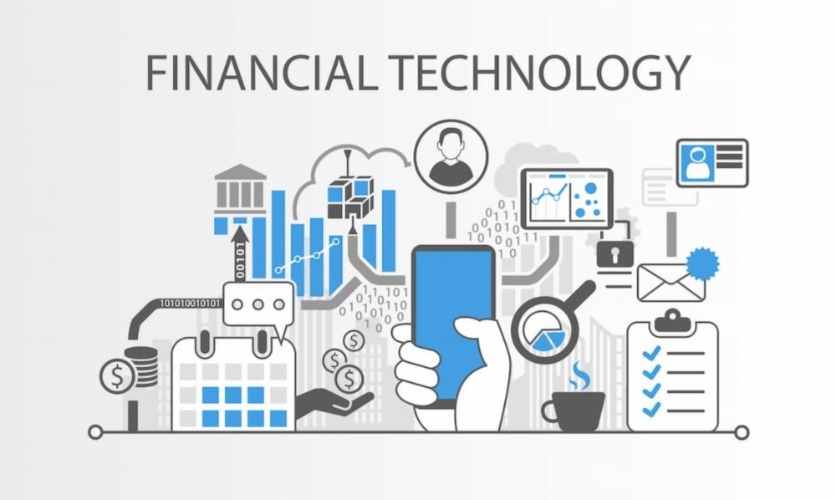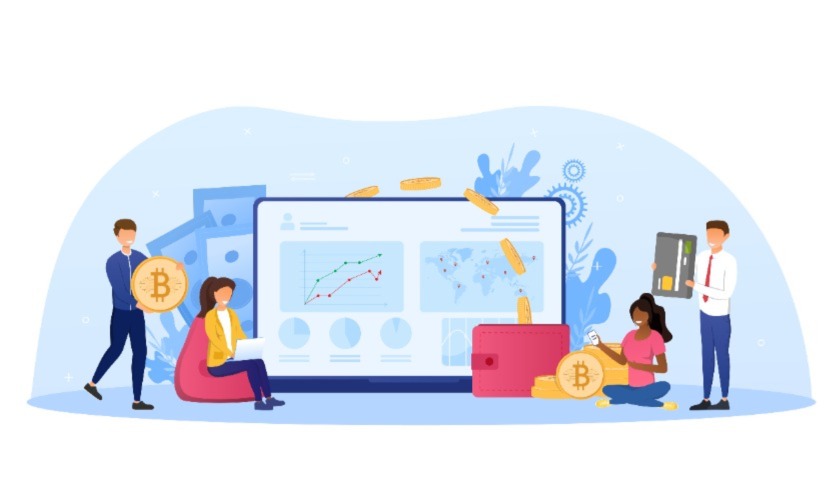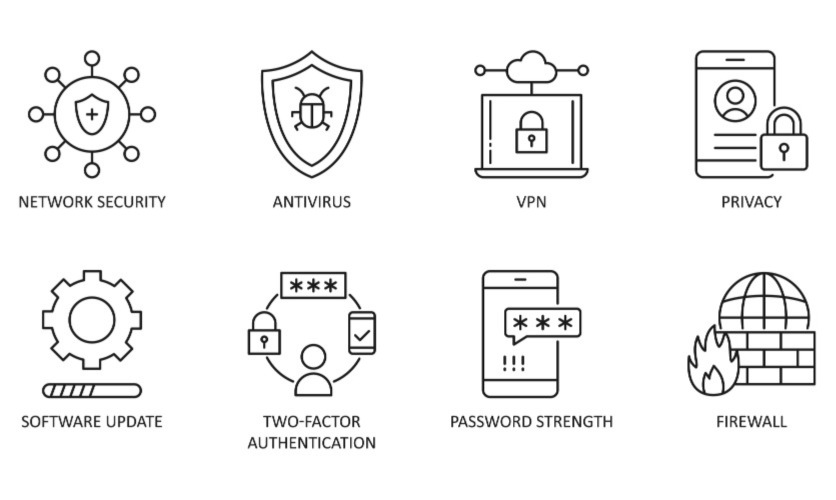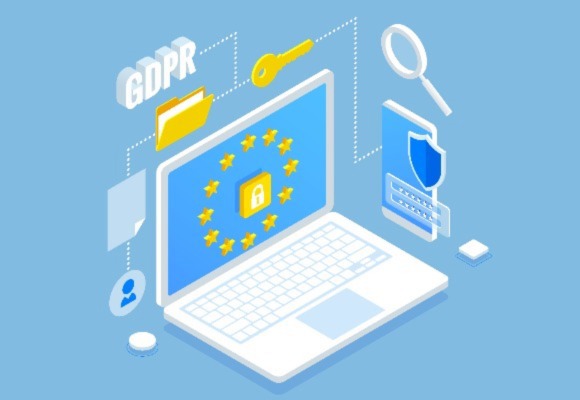May 03, 2023
As technology advances, so do the ways we interact with money. The emergence of financial technology, commonly known as FinTech, has revolutionized the way we conduct financial transactions. FinTech encompasses a wide range of financial services, from online banking to digital payments to investment management. In this article, we’ll explore the definition of FinTech and some of the cybersecurity solutions available to ensure your financial transactions are secure.
What is FinTech?

Ever used Venmo? FinTech, short for financial technology, refers to the use of technology to provide financial services. It’s a broad term that covers a wide range of financial services, including online banking, mobile payments, peer-to-peer lending, investment management, and cryptocurrencies. Essentially, any financial service that utilizes technology falls under the FinTech umbrella.
Ever used Venmo? FinTech, short for financial technology, refers to the use of technology to provide financial services. It’s a broad term that covers a wide range of financial services, including online banking, mobile payments, peer-to-peer lending, investment management, and cryptocurrencies. Essentially, any financial service that utilizes technology falls under the FinTech umbrella.
FinTech has been rapidly growing in popularity over the last few years and for good reason! It has the potential to make financial services more accessible, affordable, and convenient. By leveraging technology, FinTech companies are able to offer services that traditional financial institutions simply can’t. They can provide real-time transactions, personalized investment advice, and low-cost payment processing, just to name a few.
One of the benefits of using FinTech is the convenience it offers. With traditional financial institutions, clients may have to physically visit a bank to complete transactions, but with FinTech, everything can be done online or through mobile apps. This means clients can manage their finances from anywhere and at any time, which is especially appealing to the younger, tech-savvy generation.
There are countless examples of FinTech in action! Take a look at the applications on your mobile smartphone. Are any of them banking apps? What about money transfer apps? In recent years, even stock market investment apps have become incredibly popular! Here are a few of the most common examples of FinTech in our lives:
Online banking
With online banking, customers can access their accounts and perform transactions from anywhere with an Internet connection. They can check their balances, transfer money between accounts, pay bills, and more, all without ever having to visit a physical branch. Thanks to the popularity of online banking, some banks today exist without a single physical branch!
Mobile payments
Mobile payments allow customers to make purchases using their mobile devices. Services like Apple Pay and Google Wallet use near-field communication (NFC) technology to allow users to simply tap their phones on a payment terminal to complete a transaction. The future is here!
Peer-to-peer lending
Peer-to-peer lending platforms connect borrowers with individual investors. This allows borrowers to secure loans without having to go through traditional financial institutions, while investors can earn higher returns than they would with traditional investments.

Cryptocurrencies & the Blockchain
Cryptocurrencies like Bitcoin and Ethereum are digital currencies that use encryption techniques to secure and verify transactions. Proponents of cryptocurrency believe they offer a decentralized alternative to traditional currency, allowing for faster, more secure, and more affordable transactions.
Blockchain technology uses a decentralized ledger to record and verify transactions, making it virtually impossible to tamper with or alter data. This makes it ideal for use in financial transactions, as it provides a high level of security and transparency. In addition, blockchain technology can also be used to create smart contracts, which are self-executing contracts with the terms of the agreement written into code. This eliminates the need for intermediaries and reduces the risk of fraud or errors.
Information Security in the FinTech Industry
While FinTech has the potential to make financial services more accessible and convenient, it also comes with its own set of risks. With so much sensitive financial information being shared online, cybersecurity is of utmost importance in the FinTech industry. A single security breach could result in the loss of millions of dollars and erode customers’ trust in a company.
In the past, hackers targeted physical banks and their customers, but now they’ve shifted their focus to the online world. The sensitive data and financial information that FinTech companies handle make them prime targets for cybercriminals. A hacker could infiltrate a FinTech company's system, steal confidential information, and sell it on the black market for a profit.
One of the biggest cybersecurity risks in FinTech is identity theft. With so much personal information being shared online, hackers can easily steal identities and use them to make fraudulent transactions. As more financial transactions are conducted online, there is a higher risk of hacking and other cyber attacks.

Cybersecurity Solutions
Fortunately, there are a number of cybersecurity solutions available to help protect your financial transactions. These companies usually invest in advanced security measures to protect their systems and customers' information, because they understand the gravity of the information they’re collecting.
One of the most common cybersecurity solutions used in FinTech is multi-factor authentication. This involves using more than one method to verify a user's identity, such as a password and a fingerprint or facial recognition. This extra layer of security makes it more difficult for cybercriminals to gain access to a user's account. Two-factor authentification could include a password and a fingerprint scan or a password and a text message code.
Another solution used by FinTech companies is encryption. This is the process of converting sensitive data into a coded language that is difficult to decipher. When a user enters their personal or financial information into a FinTech platform, the information is encrypted to prevent hackers from intercepting and decoding it. Even if a hacker manages to steal encrypted data, it would be difficult to decipher without the encryption key.
Biometric authentication is another increasingly common cybersecurity solution. It involves using unique physical characteristics to verify a user's identity, such as facial recognition, voice recognition, or fingerprint scanning. This solution is considered to be highly secure since it is difficult for a hacker to replicate someone's physical characteristics. This is seen as a more secure alternative to traditional passwords and PINs, as these can be easily hacked or guessed. It’s harder to fake someone’s entire face!

Surprisingly enough, artificial intelligence and machine learning are already hard at work detecting and preventing fraud online. FinTech companies have employed these technologies to help analyze large amounts of data to detect patterns that might indicate fraudulent behavior. The Ai can mark for anomalies and flag suspicious transactions for further review.
FinTech is revolutionizing the financial industry by offering a more convenient and accessible way to manage finances. Of course, with this convenience comes a higher risk of security breaches. As the financial industry becomes more digitized, there is a growing need for regulations to protect consumers and prevent fraudulent activity. Many governments around the world are introducing new regulations and standards to ensure the security and privacy of financial data.
Don’t fret– most FinTech companies prioritize cybersecurity and invest in advanced online security solutions. By doing so, they are able to protect their customer's sensitive information and maintain their trust. As FinTech continues to grow and evolve, it is crucial for these companies to remain vigilant and proactive in protecting their systems and customers from cyber threats.


